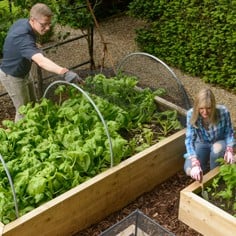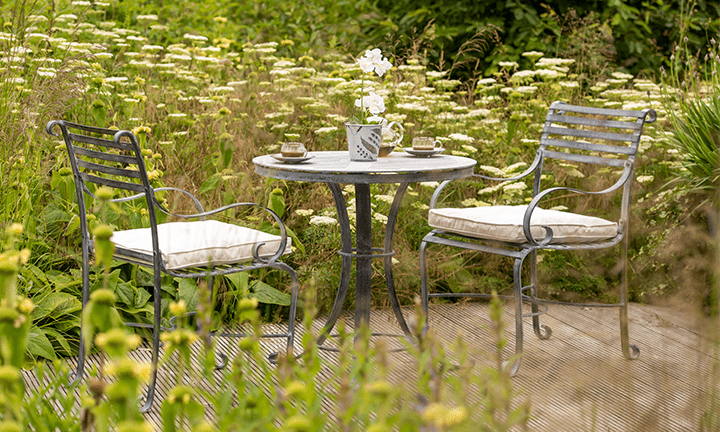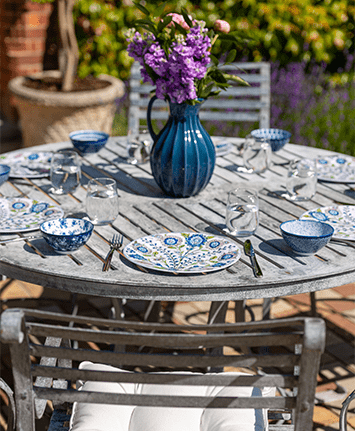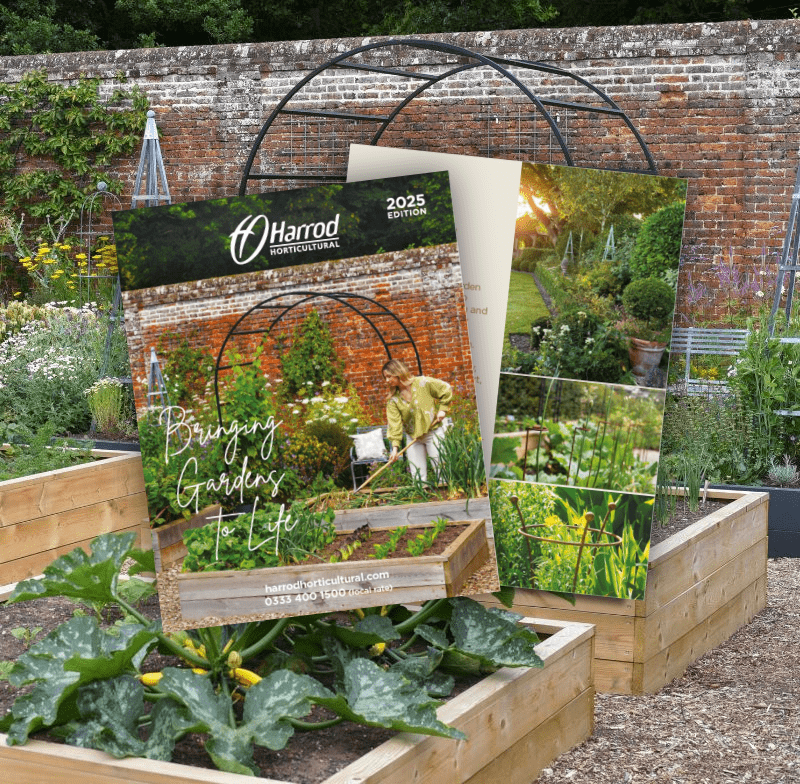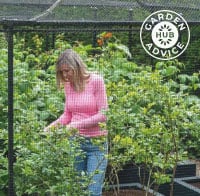Aphid Kill using Lacewing Larvae is ideal for spot treatments and combating heavier infestations of aphids on low growing plants - such as bedding plants and lettuce - between May and September. Sprinkle the shaker bottle (two sizes available - 500 larvae and an infestation-busting 1000 larvae bottle) directly over affected plants both indoors and outdoors where they'll settle down to feed on aphids and other soft bodied insects such as whitefly and thrip.
It's estimated a single lacewing larvae can eat over 300 aphids - remember there are 500 or 1000 in your Aphid Kill using Lacewing Larvae - before developing into adult lacewings which will produce the next generation of larvae to feed on more aphids.
Please Note: This live product is despatched to UK addresses only!
- Aphid Kill using Lacewing Larvae ideal for spot treatments and heavier infestation of aphids
- Simply sprinkle over affected plants
- Suitable for both indoor and outdoor use
- Temperature must be in excess of 15ºC
- 1 lacewing larvae can eat over 300 aphids
- Available in a 500 or 1000 shaker bottle
- Use between May and September
- Best suited for use on low growing crops such as bedding plants, lettuce and other salads
- Shaker bottle of 500 larvae will treat up to 50sqm
- Repeat treatments when necessary
- Use our Aphid Control using Ladybirds for infestations on tall plants
- Larvae may be impeded by hairy stems or leaves
- Larvae also feed on other soft bodied pests such as spider mites and thrips
PLEASE SELECT WHETHER YOU ARE ORDERING THIS PRODUCT FOR INDOOR OR OUTDOOR USE.
INDOOR: Your order will be despatched to you shortly
OUTDOOR: Your order will be despatched to you from May onwards which is the optimum time to use this product.
NOTE: You need to order by Thursday pm to allow for delivery on the following Wednesday
Product Reviews
Used these alongside Ladybirds this year as a replacement for Parasitic Wasps. I love going in to my greenhouse and watching these little guys set about eating the aphids... entertaining! And despite the description saying for low growing plants, I've seen this guys at the top of my cucumbers! My only minor issue is they don't seem to last too long, other than that these are a recommended buy.

Aphids in the Garden
Our Pest Control Expert, Julian Ives, has spent many years advising commercial growers and gardeners on the subject of safe and efficient natural pest control treatments.
Here he shares his experience on the problems Aphids can cause in the garden...
Appearance and Lifecycle
The aphid family is a large one with about 4000 species. Some of these species have common names like greenfly and black fly. Aphids are small in size and range from 0.5mm to about 7.0mm. Their colour varies between different species. They can appear in many different colours including; green, black, pink, grey and waxy white. There are about 250 species, which are harmful to plants and crops. They have a very rapid reproductive capacity and cause significant damage to plants and spread plant viruses.
Aphid population development is influenced by many factors including; temperature, the type of host plants and the amount of natural enemies present. Aphids can reproduce asexually and produce huge numbers of already formed young aphids daily.
Symptoms and Damage
The damage aphid causes is as a result of the sap that they extract from plants. This weakens plants causing stunted growth. Leaves can be deformed and young plants can be killed. For larger plants defoliation can occur and yield is reduced for fruit and vegetables. As aphids feed on the plants they also produce honeydew, which they deposit on leaves and plant stems, black sooty moulds then grow on the honeydew. Aphids are also capable of spreading damaging plant viruses.
The first sign of aphid activity is often the appearance of individual winged aphids, which then go on to form colonies of aphids. If this is not observed, other signs of aphid activity can be the appearance of aphid skins on leaves, which can be mistaken for whitefly. Other symptoms will include sticky honeydew deposits appearing on leaves and the general stunting of plant growth. Aphids will attack many different types of plants indoors and outdoors. Greenhouse grown plants will generally suffer damage more quickly as the higher temperatures increase the reproductive capacity of the aphid.
Natural Choice Treatments
Aphids have a number of natural enemies that can be used to combat their development and reduce their harmful effects these include; parasitic wasps, ladybirds and lacewings. There are also safe spray treatments available to use when it is not practical to use beneficial insects. These options are brought together in the Harrod Horticultural Natural Choice pest control range.
Live Pest Control Delivery
This is a live pest control product which is ordered weekly every Friday. The live product is then received into our warehouse on Wednesday of the following week for delivery by the end of the week.
For example an order placed on a Monday would be ordered on Friday, received into the warehouse on the following Wednesday for delivery by the end of that week.






